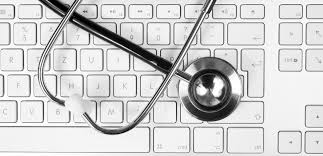Medical coding and billing courses are becoming increasingly popular as the demand for professionals in this field continues to rise. If you are considering a career in healthcare administration or want to enhance your existing skills, enrolling in a medical coding and billing course could be a great option for you. In this article, we will explore the ins and outs of medical coding and billing courses, their benefits, and some practical tips for success.
**Introduction to Medical Coding and Billing Course**
Medical coding and billing is an essential part of the healthcare industry. These professionals play a crucial role in ensuring accurate billing, reimbursement, and record-keeping for healthcare services. Medical coders are responsible for translating medical diagnoses and procedures into universal codes, while medical billers ensure that these codes are accurately processed for payment by insurance companies.
**Why Take a Medical Coding and Billing Course**
There are several reasons why taking a medical coding and billing course can be beneficial:
1. High Demand: The healthcare industry is constantly growing, and there is a high demand for skilled medical coding and billing professionals.
2. Job Stability: Medical coding and billing professionals are essential members of the healthcare team, providing job stability and opportunities for growth.
3. Flexibility: Medical coding and billing professionals can work in a variety of settings, including hospitals, clinics, insurance companies, and remote positions.
4. Competitive Salary: With the increasing demand for medical coders and billers, these professionals can earn competitive salaries.
**Benefits of a Medical Coding and Billing Course**
Enrolling in a medical coding and billing course can offer several benefits, including:
1. Comprehensive Curriculum: Medical coding and billing courses cover topics such as medical terminology, anatomy, physiology, coding guidelines, insurance claims, and more.
2. Hands-on Experience: Many courses offer hands-on training and practical experience to help you apply your knowledge in real-world scenarios.
3. Certification Preparation: Some courses offer preparation for industry-recognized certifications, such as Certified Professional Coder (CPC) or Certified Professional Biller (CPB).
4. Networking Opportunities: Medical coding and billing courses provide opportunities to connect with industry professionals and build a network for future career opportunities.
**Practical Tips for Success in a Medical Coding and Billing Course**
Here are some practical tips to help you succeed in your medical coding and billing course:
1. Stay Organized: Keep track of assignments, deadlines, and study materials to stay on top of your coursework.
2. Practice Regularly: Coding and billing require practice to master, so make sure to practice regularly to improve your skills.
3. Seek Help When Needed: Don’t hesitate to reach out to your instructors or classmates if you need help or clarification on any topics.
4. Stay Updated: The healthcare industry is constantly evolving, so stay updated on new coding guidelines, regulations, and technologies.
**Conclusion**
Enrolling in a medical coding and billing course is a great way to kickstart your career in healthcare administration or enhance your existing skills. With high demand, job stability, competitive salaries, and flexible job opportunities, pursuing a career in medical coding and billing can be a rewarding choice. By following practical tips for success and staying committed to your studies, you can excel in your course and prepare for a successful career in this growing field.



